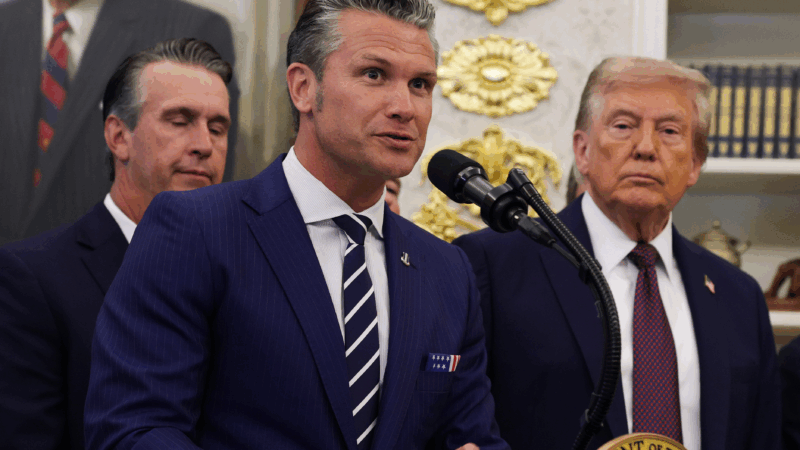Military lawyers called up to relieve a shortfall in immigration judges
About 600 military lawyers have been authorized to work for the Justice Department as temporary immigration judges, with 150 of them potentially starting as soon as this week, according to a U.S. official who was not authorized to speak publicly.
The move comes after the Justice Department last week made changes to who could qualify as a temporary immigration judge – effectively lowering the requirements and removing the need to have prior immigration experience.
Immigration judges are the only ones who can revoke someone’s green card or issue a final order of removal for people who have been in the country for more than two years and are in the process of being deported.
The military lawyers will receive some two weeks of training to serve as temporary immigration judges, according to the U.S. official.
As part of its aggressive immigration policy, the Trump administration has moved fast to increase the rate of arrests of undocumented immigration, and scale up detention space and deportations. But the rapid pace of arrests has contributed to the millions of cases backlogged at the Department of Justice’s Executive Office for Immigration Review, which houses immigration courts.
At the same time, in the last nine months, EOIR has lost over 100 judges to firings and voluntary resignations, down from about 700 judges at the start of the year.
The Homeland Security Department, which oversees immigration law enforcement, has launched a nationwide recruitment campaign for deportation officers, investigators and attorneys, spurred by an influx of more funds from Congress.
President Trump earlier this year also voiced support for a plan in Florida to deputize military lawyers in the state’s National Guard, known as the Judge Advocate General’s Corps, to act as immigration judges.
Earlier this year, Congress approved a mega-spending bill that allocated over $3 billion to the Justice Department for immigration-related activities, including hiring more immigration judges.
The funding and additional personnel are aimed at alleviating the growing case backlog, which is nearly 4 million cases. Hiring and training permanent judges can take more than a year.
Mitski comes undone
She may be indie rock's queen of precisely rendered emotion, but on Mitski's latest album, Nothing's About to Happen to Me, warped perspectives, questionable motives and possible hauntings abound.
This quiet epic is the top-grossing Japanese live action film of all time
The Oscar-nominated Kokuho tells a compelling story about friendship, the weight of history and the torturous road to becoming a star in Japan's Kabuki theater.
The Live Nation trial could reshape the music industry. Here’s what you need to know
On Tuesday opening statements will begin for the federal antitrust trial against Live Nation, one of the largest entertainment companies in the world.
A new one-a-day-pill holds promise for HIV’s ‘forgotten population’
It's designed to take the place of complicated, multiple drug regimens that many people with HIV need to follow. And it's also beneficial because the HIV virus is always evolving.
For filmmaker Chloé Zhao, creative life was never linear
Director Chloé Zhao used meditation, somatic exercises and dance to inspire the cast and crew of this Oscar-nominated story about William Shakespeare's family.
10 new books in March offer mental vacations
March is always a big one for books – this year is no different. We call out a handful of upcoming titles for readers to put on their radars — offering a good alternative to doomscrolling.








